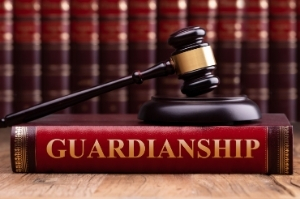
Notice: Please note that Rebeccah Beller is a Florida attorney specializing in guardianship matters in the state of Florida. Our legal team only handles guardianships within Florida and cannot provide assistance for cases outside of this jurisdiction.
What Is a Guardianship?
Guardianship is established through a legal proceeding where the court appoints a person to make important personal and financial decisions for a minor child or incapacitated adult. When dealing with legal guardianship for adults, a court will only appoint a guardian if there is no less restrictive alternative like a trust, durable power of attorney, healthcare surrogate, or healthcare proxy.
What Are the Types of Florida Guardianships?
Florida guardianships fall into one of two categories. A limited guardianship is appropriate when the ward lacks the mental capacity to perform some but not all of the tasks necessary to care for themselves and their property. A plenary guardianship is appropriate when the ward is entirely unable to care for themselves. Necessarily, the powers given to a plenary guardian are far greater than those given to a limited guardian.
When Can You Contest a Florida Guardianship?
Florida guardianships can be contested in a few different scenarios. However, to contest a guardianship, you must be an “interested party.” An interested party is any of the putative ward’s next of kin—including children, grandchildren, siblings, or parents. Anyone else with rights that would be affected by the court appointing a guardian may also be an interested party.
Of course, the putative ward is an interested party as well. Under Florida law, when someone initiates a guardianship proceeding, the court will appoint a guardian ad litem to represent the interests of the ward during the process. Thus, in many cases, it is the guardian ad litem who objects to the appointment of a guardian.
Challenging Incapacity
Once you determine you have the legal right to challenge a guardianship, the next step is to outline why you are doing so. In many cases, people challenge a guardianship based on a belief that the allegedly incapacitated adult can make decisions on their own. You can establish competency through expert medical testimony and testimony from friends and family who know the ward. If the court determines that the putative ward is not incapacitated, it cannot appoint a guardian, and the proceedings are over.
Challenging the Guardian’s Motives
Another common basis for objecting to guardianship is that the challenger doesn’t believe the potential guardian has the incapacitated adult’s best interests at heart. However, this type of challenge can be difficult to prove absent evidence that the potential guardian’s prior actions or decisions adversely affected the potential ward.
Challenging the Guardian’s Abilities
The final way to object to guardianship is to make a case that the potential guardian cannot manage the ward’s affairs or their estate. For example, suppose the guardian has a history of making poor financial decisions, has a lengthy criminal record, or has a history of substance abuse. In that case, the court may find them unsuitable to serve as a guardian.
What Is the Difference Between a Guardianship and a Conservatorship?
The terms guardianship and conservatorship are frequently used interchangeably, which can lead to some confusion. In part, this is because every state defines the terms differently, and in some states, the two are synonymous. In Florida, guardianships and conservatorships confer identical powers, rights, and duties upon the person entrusted with the ward’s care. However, conservatorships are only used when the putative ward is determined to be an “absentee.”
Under Florida Statutes § 747.01, an absentee is any Florida resident (or a person who owns property in the state) who:
- Disappeared under circumstances that indicate they may have died; or
- Disappeared as the result of mental illness.
A member of the Armed Services, Red Cross, or Merchant Marines who is missing in action, held captive by an enemy county, or detained in a neutral country is also considered absent. Before a court can appoint a conservator, it must hold a hearing to determine that the putative ward is, in fact, an absentee.
Can a Conservatorship Be Contested?
Yes, conservatorships, like guardianships, can be contested. Any interested party can contest a conservatorship. Interested parties most often refer to the family members of the person alleged to be an absentee. However, there are rare occasions where another party may have an interest in a conservatorship proceeding—provided they can show that their rights would be affected by the appointment of a guardian. As is the case with a guardianship proceeding, the court may appoint a guardian ad litem to represent the interests of the ward during the pendency of the conservatorship case.
Speak with an Experienced Attorney About Your Situation Today
If you are seeking to establish a challenged guardianship or you want to challenge another’s guardianship petition, Beller Law, PL can help. Our lawyer has more than 25 years of hands-on experience handling a range of complex and contested guardianship matters. We can help you determine when a contested guardianship proceeding may be necessary and how to proceed. We are immediately available to meet with you to discuss your situation and go over all of your options. That way, you can rest assured knowing that whatever decision you come to furthers your family’s best interests. To learn more and schedule a consultation with our Jacksonville, FL guardianship lawyer. You can also reach us through our online form, and one of our team members will contact you soon.
